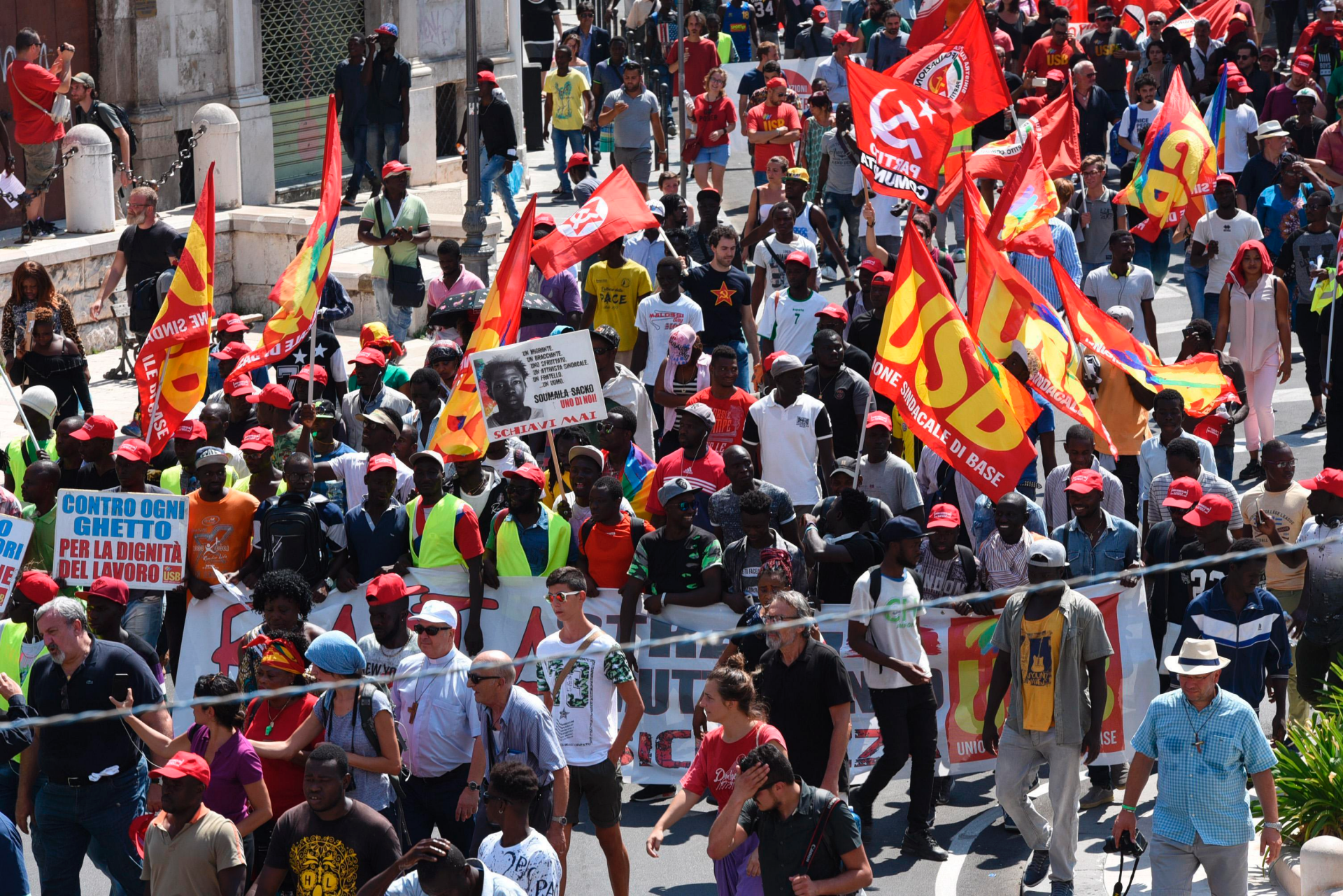Exploitation of Migrant Workers Behind the ‘Made in Italy’ Luxury Label

Migrant workers in Italy, primarily in the country’s famed luxury leather and fashion industries, have been subjected to sweatshop-like conditions while crafting high-end products. Recent protests, including a demonstration in Geneva by migrant laborers and union officials, highlighted these abuses, specifically targeting Montblanc, whose parent company Richemont allegedly cut ties with a Tuscany-based supplier, Z Production, due to improved worker conditions and rising costs.
Z Production, employing mostly undocumented migrant workers from countries like Pakistan, China, and Bangladesh, had been producing leather accessories for luxury brands, including Montblanc. Workers reported long shifts and harsh conditions, with one employee, Zain Ali, stating that they were treated “like slaves.” While Montblanc justified the termination of its contract with Z Production due to failure to meet its supplier standards, workers and unions contend that the decision was influenced by the contractor’s move to implement legal working hours and conditions.
This issue is not isolated. Investigations this year exposed poor labor practices in 16 workshops near Milan, producing for luxury brands such as Dior, Giorgio Armani, and Alviero Martini. Prosecutors found instances of undocumented labor, illegal subcontracting, and exploitation in these workshops, which functioned as part of an opaque supply chain designed to maximize profit at the expense of labor rights.
Migrant workers in Tuscany, a key leather-making region, described similar conditions. Abbas, a Pakistani migrant, recounted standing for 14 hours straight, suffering from severe pain, and receiving minimal pay for his work in a leather accessory factory. Workers, employed without contracts, often toiled for long hours without the necessary skills, contributing to products for major luxury brands.
Court documents reveal that luxury brands outsource production to contractors, who in turn subcontract the actual work to other workshops. This setup allows brands to maintain distance from labor violations, despite the prevalence of illegal practices within these subcontracted workshops. The Milan court has placed several of these companies, including Giorgio Armani Operations and Manufactures Dior, under judicial administration for a year to address labor violations.
Despite public commitments by brands like Dior and Armani to strengthen their supply chain oversight, industry experts warn that the sheer size of the luxury supply chain, involving thousands of suppliers and subcontractors, makes comprehensive monitoring nearly impossible. The pressure to keep production costs low, while maintaining high profit margins, incentivizes exploitative practices.
While raids and inspections by Italian authorities have forced some contractors to improve conditions, others have shifted production to less scrutinized areas of the country, such as Veneto and Campania, to avoid enforcement actions. The exploitation of workers, underpayment, and unsafe working conditions remain widespread, tarnishing the reputation of the ‘Made in Italy’ label and exposing the luxury sector’s reliance on cheap labor.




















